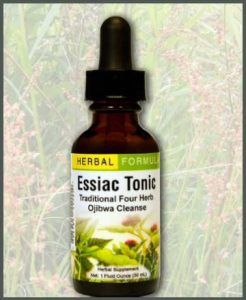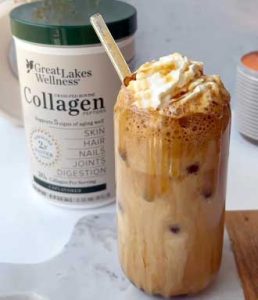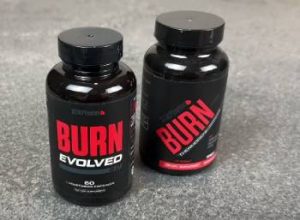If you’re looking for an affordable face cream that delivers real results, Lacura might be the one for you. It’s a skincare line from Aldi, known for offering high-quality products at a fraction of the price of luxury brands. Packed with ingredients like Q10 and retinol, this cream claims to hydrate, smooth fine lines, and improve overall skin texture. But does it really work? After using it consistently, I’m sharing my experience—what works, what doesn’t, and whether it’s truly worth adding to your routine.
What Is Lacura Face Cream?

Lacura face cream is a skincare product from Aldi’s private-label beauty line, offering affordable yet effective formulas that cater to various skin concerns. Known for its budget-friendly alternatives to high-end brands, Lacura includes ingredients commonly found in luxury skincare, such as hyaluronic acid, retinol, and botanical extracts.
The range features different formulations targeting hydration, anti-aging, and skin renewal, making it accessible to a wide audience. One of its most popular products is the Lacura Q10 Anti-Wrinkle Cream, which combines coenzyme Q10, retinol complex, and peptides to help reduce fine lines and improve skin elasticity.
For those looking for deep hydration, the Lacura Moisture Boost cream, infused with hyaluronic acid, provides long-lasting moisture while keeping the skin plump and smooth. Many users praise Lacura for its rich, nourishing textures and impressive results at a fraction of the cost of designer brands.
However, because Aldi frequently rotates its stock, availability can be inconsistent, and some customers may find it difficult to repurchase their favorite products. While Lacura offers a variety of face creams, it’s essential to check the ingredient list to ensure compatibility with your skin type, as some formulations contain fragrance or active ingredients that may not be suitable for sensitive skin.
Overall, Lacura face creams provide an affordable way to incorporate high-quality skincare ingredients into your routine without breaking the bank, making them a great option for those seeking effective, budget-conscious skincare solutions.
My Experience Using Lacura Face Cream
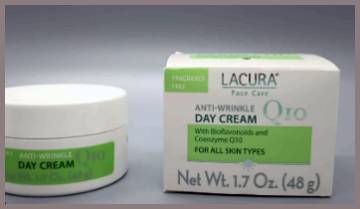
Using Lacura face cream was a surprisingly positive experience, especially considering its affordability. I tried the Lacura Q10 Anti-Wrinkle Cream, which claims to hydrate, smooth fine lines, and improve skin elasticity.
The texture was rich but not greasy, and it absorbed quickly without leaving a heavy residue. After the first application, my skin felt noticeably softer and well-moisturized.
Over the next few weeks, I noticed a subtle improvement in my skin’s overall texture—it appeared smoother, and some fine lines around my eyes seemed less pronounced. One thing I appreciated was that it didn’t cause any breakouts or irritation, even though my skin can be sensitive to new products.
The scent was mild but pleasant, which made it enjoyable to use. However, since the formula contains fragrance, it may not be ideal for those with extremely sensitive skin. Compared to pricier brands, I felt Lacura held its own in terms of hydration and comfort, though it didn’t deliver dramatic anti-aging results.
Another drawback was the inconsistent availability at Aldi, making it harder to repurchase when needed. Despite this, for the price, I found it to be an excellent daily moisturizer that kept my skin feeling soft and nourished.
If you’re looking for an affordable skincare option with decent ingredients, Lacura face cream is worth trying, especially if you don’t want to spend a fortune on high-end alternatives. I would definitely consider buying it again when available.
How to Get the Most Out of Lacura Face Cream?
To get the most out of Lacura face cream, it’s essential to apply it correctly and incorporate it into a well-rounded skincare routine. Start with a clean face by using a gentle cleanser to remove dirt, oil, and makeup, ensuring the cream can fully absorb into the skin.
For best results, apply Lacura face cream while your skin is still slightly damp, as this helps lock in moisture and enhances hydration. If using a formula with active ingredients like retinol or Q10, apply it at night to maximize its anti-aging benefits while your skin repairs itself during sleep.
During the day, pair it with sunscreen, especially if the cream contains retinol or other ingredients that may increase sun sensitivity. If you have dry skin, consider layering Lacura face cream over a hydrating serum for an extra moisture boost. For those with oily or combination skin, using a smaller amount and focusing on drier areas can help prevent excess shine.
Gently massaging the cream into the skin using upward motions can also promote better absorption and improve circulation. If you experience sensitivity, introduce the cream gradually by using it every other day before making it a part of your daily routine.
Proper storage is also important—keep the cream in a cool, dry place away from direct sunlight to maintain its effectiveness. By following these steps, you can maximize the benefits of Lacura face cream and achieve healthier, more radiant skin.
Pros and Cons of Lacura Face Cream

Pros:
- Affordable Pricing: Offers high-quality skincare ingredients at a fraction of the cost of luxury brands.
- Hydrating Formula: Many variants include hyaluronic acid and nourishing oils that keep skin moisturized.
- Anti-Aging Ingredients: Some formulations contain retinol, Q10, and peptides to help reduce fine lines and improve skin elasticity.
- Lightweight and Non-Greasy: Absorbs well into the skin without leaving a heavy or sticky residue.
- Pleasant Texture and Scent: Many users find the creams smooth, easy to apply, and lightly fragranced for a spa-like experience.
- Suitable for Various Skin Types: Offers different formulations to address hydration, anti-aging, and sensitive skin needs.
- Comparable to High-End Brands: Often considered a budget-friendly alternative to luxury skincare products.
Cons:
- Limited Availability: Only sold at Aldi, and stock rotation makes it difficult to repurchase consistently.
- Contains Fragrance: Some formulations include fragrance, which may irritate sensitive skin.
- Not Dermatologist-Tested: Lacks clinical testing or endorsements compared to premium skincare brands.
- May Not Deliver Dramatic Results: While hydrating, some users report minimal visible changes in wrinkles or firmness.
- Small Product Range: Fewer options compared to mainstream skincare brands, limiting choices for specific concerns.
- May Not Suit All Skin Types: Certain active ingredients like retinol could be too strong for sensitive or reactive skin.
Lacura Vs. Other Face Creams
- Lacura Vs. Nivea Q10 Anti-Wrinkle Cream
Both Lacura and Nivea Q10 creams focus on anti-aging with coenzyme Q10, which helps reduce fine lines and improve skin elasticity. Nivea’s formula is slightly richer and contains SPF, making it a great daytime option. Lacura, on the other hand, offers a more lightweight texture and absorbs quickly, making it suitable for both day and night use. While Nivea is widely available, Lacura is exclusive to Aldi, which can make repurchasing difficult. If you’re looking for an affordable, no-fuss anti-aging cream, both are solid choices, but Nivea is more accessible, while Lacura offers a budget-friendly alternative.
- Lacura Vs. Olay Regenerist Micro-Sculpting Cream
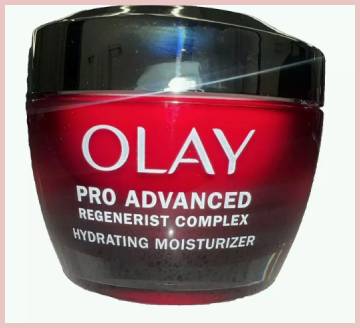
Olay Regenerist is known for its advanced anti-aging ingredients, including peptides and hyaluronic acid, which deeply hydrate and firm the skin.
Lacura offers a similar effect with its Q10 and retinol-based formulas but at a fraction of the price. While Olay’s formula is backed by extensive research and provides faster visible results, Lacura holds its own as a budget-friendly dupe.
If price is a concern, Lacura is a great option, but for those willing to invest in clinically proven skincare, Olay may deliver better long-term anti-aging benefits.
- Lacura Vs. CeraVe Moisturizing Cream
CeraVe is a dermatologist-recommended brand with ceramides and hyaluronic acid, making it ideal for repairing the skin barrier and deeply hydrating dry skin. Lacura also offers hydrating formulas but focuses more on anti-aging benefits. While CeraVe is fragrance-free and suitable for sensitive skin, some Lacura creams contain fragrance, which may not be ideal for everyone. If you need a simple, effective moisturizer for sensitive skin, CeraVe is the better choice, but if you want a more luxurious texture with added skincare benefits, Lacura is a great budget-friendly alternative.
- Lacura Vs. L’Oréal Revitalift Face Cream
L’Oréal Revitalift is formulated with pro-retinol and hyaluronic acid to target wrinkles and improve skin firmness. While Lacura also includes retinol in some of its formulas, Revitalift has a more potent anti-aging focus and a proven track record of delivering visible results. Lacura is a more affordable option and works well as a daily moisturizer with added benefits, but for those looking for intensive wrinkle reduction, Revitalift may be more effective. If you want an inexpensive, everyday anti-aging cream, Lacura is a solid pick, while Revitalift is better for serious anti-aging concerns.
- Lacura Vs. Pond’s Rejuveness Anti-Wrinkle Cream
Pond’s Rejuveness is a classic anti-aging cream featuring collagen and alpha hydroxy acids (AHAs) to exfoliate and improve skin texture. Lacura, on the other hand, focuses more on hydration and nourishment with ingredients like Q10 and retinol. While Pond’s helps with brightening and refining the skin, it may not be as deeply moisturizing as Lacura’s formulas. If you prefer a cream that focuses on exfoliation and cell renewal, Pond’s is a great choice, but if hydration and long-term anti-aging benefits are your priority, Lacura provides a more balanced formula at a lower cost.
Also Read: My Thoughts On B-FLAT Belly Firming Cream
Frequently Asked Questions (FAQs)
Lacura Miracle Cream is often compared to Elizabeth Arden’s Eight Hour Cream due to its rich, multi-purpose formula that hydrates and soothes the skin.
Lacura skincare products have been called dupes for high-end brands like Estée Lauder, Olay, and Elizabeth Arden, offering similar ingredients at a fraction of the price.
This depends on your skin type and concerns. For deep wrinkles, brands like Olay Regenerist, L’Oréal Revitalift, and high-end options like Estée Lauder Advanced Night Repair tend to be more effective. However, Lacura is a great budget-friendly option for hydration and mild anti-aging benefits.
Lacura is an Aldi-exclusive skincare brand, manufactured under strict European beauty standards to compete with luxury skincare at lower prices.
Final Thoughts
If you’re looking for an affordable, hydrating face cream with mild anti-aging benefits, Lacura is a great option. It offers good hydration, a lightweight texture, and key ingredients like Q10 and retinol, all at a budget-friendly price. While it may not replace high-end anti-aging creams for deeper wrinkles, it’s an excellent choice for everyday hydration and improving skin texture. If you can get your hands on it, it’s worth trying out.

